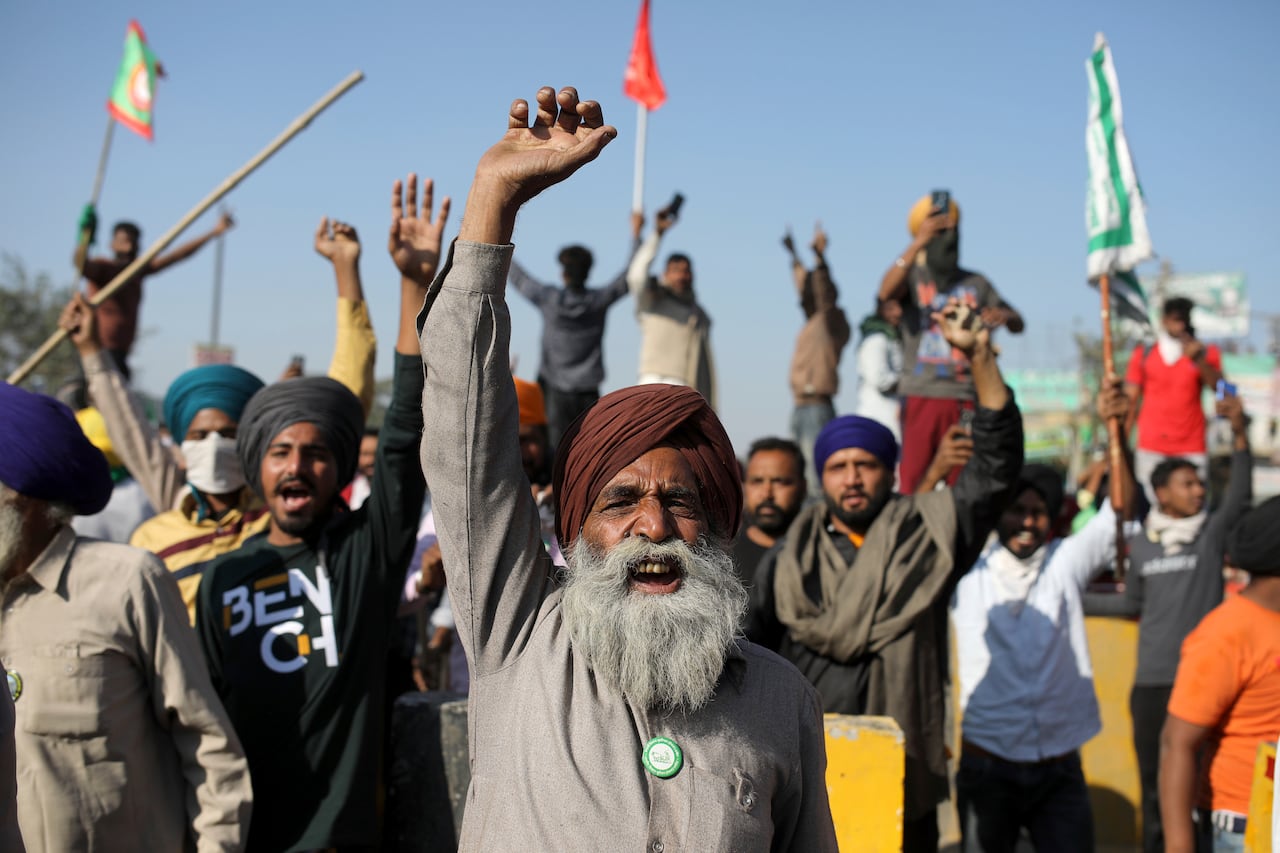The government is unwilling to accept to what extent the farmers’ movement has gone against it. Yet, space is shrinking beneath its feet in the matter of the ongoing protests by the farmers against the three laws purported to liberalize the market, which in fact have serious loopholes that can batter the farmers’ livelihood. Farmers at Ghazipur (Delhi-UP border) and other places, as part of the protests observed ‘Shahidi Diwas’ on Sunday. After several rounds of talks between the agitating farmers and the government, the deadlock has continued.
On Sunday, the Centre sent out an invite to the farmers’ unions to join the discussion with the government again and asked them to fix the date of the meeting at Vigyan Bhavan according to their convenience. Meanwhile, protesting farmers have announced that they will organize a day-long relay hunger strike on Monday and block all toll collection on the national highways in Haryana from December 25-27.
Union Minister VK Singh said on Sunday that the ongoing protests by farmers against the three Central farm laws was “more political” in nature and underlined the NDA government’s intent to ensure the welfare of the peasants. Speaking to reporters in Tamil Nadu’s Thanjavur ahead of his interaction with farmers, the Minister of State for Road Transport and Highways claimed that “actual farmers are very happy with what has been done in last six months.” This shows that the BJP is far from the ground sentiments of the farmers, when the leaders of the party give out such statement when there is a full-blown movement going on around the National capital. The BJP is also probably remote, or rather blinded by overconfidence, from the gradually increasing possibility of the formation of a national coalition with the divergent parties coming under one umbrella led by parties like NCP, SAD and TMC.
Haryana Chief Minister Manohar Lal Khattar had earlier said that the government is ready for talks with the farmers if they “come forward without seeking a yes or no response” to their demand. On the other hand, BJP leader and former Union Minister Chaudhary Birender Singh declared that the farmers’ protests against the new farm laws is now “everybody’s agitation”. Few days back he had joined a dharna in the support of farmers at Sampla in Jhajjar district of Haryana. The sit-in had been organized by members of the Sir Chhotu Ram Manch. Birender Singh is the grandson of Sir Chhotu Ram, pre-independent India’s tallest Jat leader and the driving force behind several laws and measures to end exploitation of farmers by moneylenders. Singh’s son Brijendra Singh is the BJP MP from Hisar.
Birender Singh said that he was keen to go to the borders of Delhi where the protests have gone beyond 25 days. Singh also told, “I stand by them. This is everybody’s agitation now. It is not limited to a section of society. I am already in the field and have made up my mind. If I am not in the frontline, then people will feel that I am just doing politics, nothing else.”
“I am morally bound (to support the farmers). The concept of MSP (minimum support price) and APMC (Agricultural Produce Market Committee) was the handiwork of Chaudhary Chhotu Ram. First time, he brought in agricultural reforms (during British rule),” Singh said at the dharna organized by Sir Chhotu Ram Manch.
Role of Chhotu Ram in agriculture
Sir Chhotu Ram, as the development minister in the provincial government of his Unionist Party, had got The Punjab Agricultural Produce Markets Act passed in 1939, paving way for the creation of the market committees with two-thirds farmer representation to oversee the functioning of the mandis.
The 1939 Act was just one of the reform laws introduced in Punjab province by the Unionist Party, which also saw the passage of three crucial Bills seeking to end the exploitation of the peasantry by moneylenders.
It was in 1905 that Sir Chhotu Ram co-founded the All India Jat (then Kshatriya) Mahasabha. He went on to become its secretary in 1913. In 1916, he started publishing an Urdu weekly, Jat Gazette, to air the grievances of the farmers, under the title of ‘Bechara Zamindar’ and formed ‘Zamindara League’ with farmers mainly from the Sikh and Hindu faiths.





